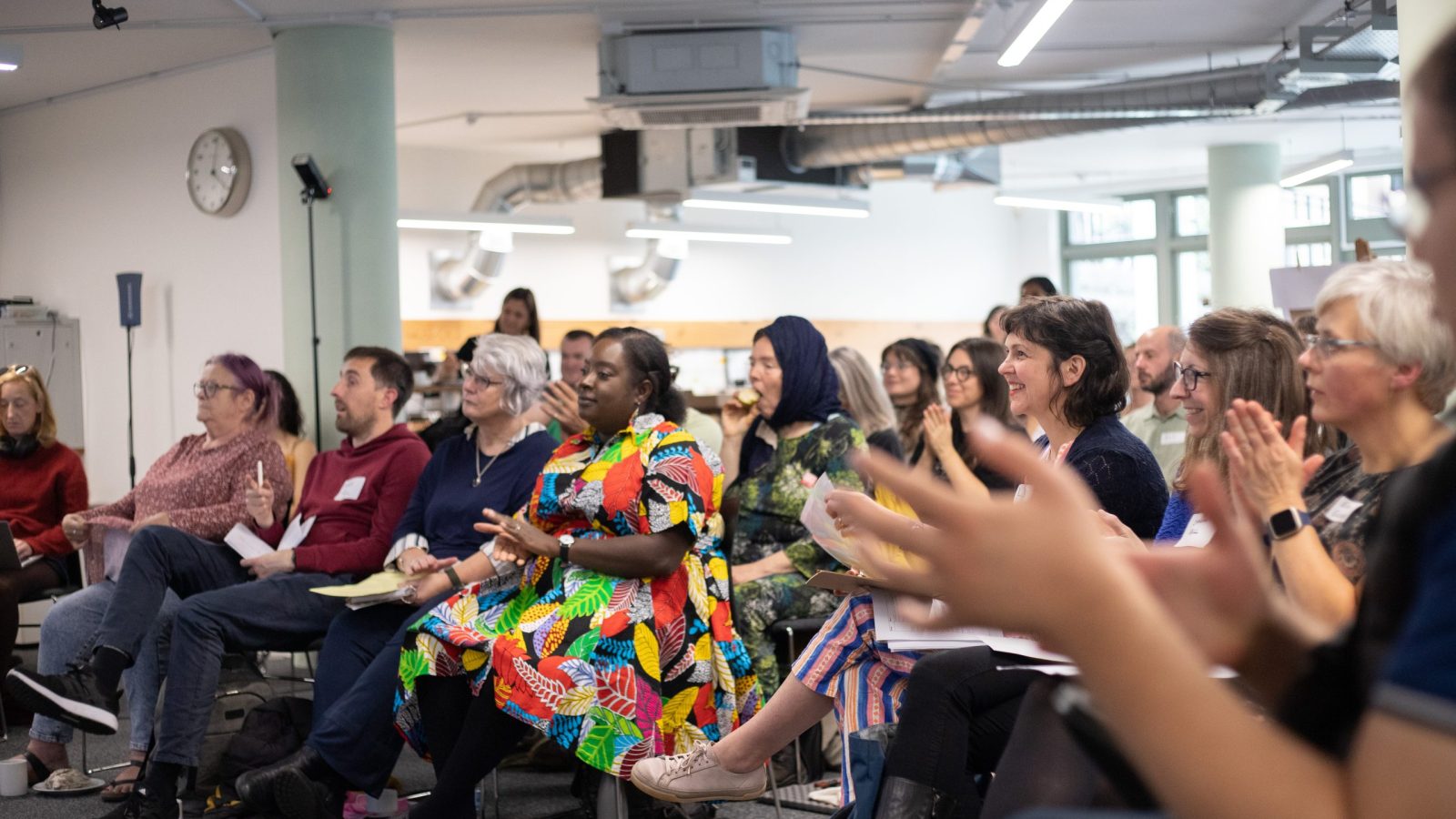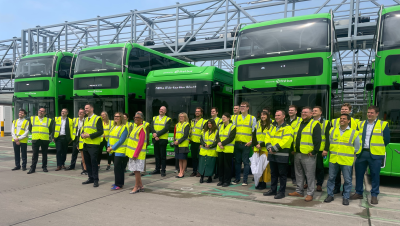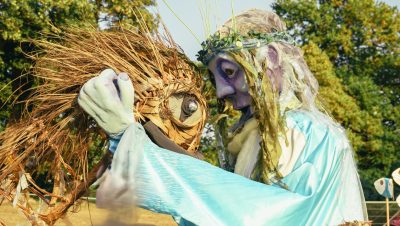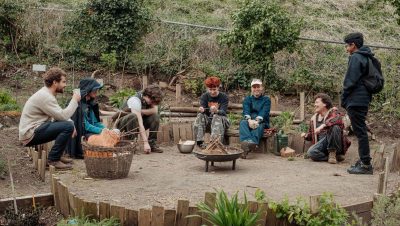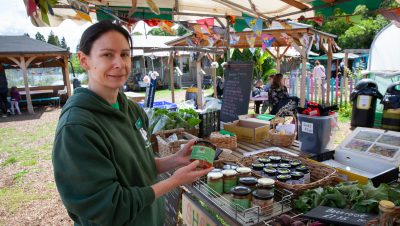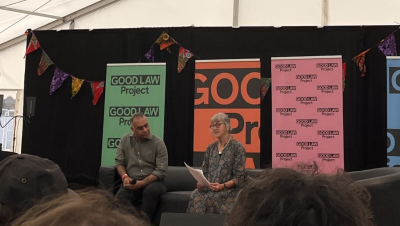Features / disability
Climate and Disability project lays out pathway to inclusion
A Bristol Climate and Nature Partnership event demonstrated the organisation’s commitment to fairness, equality and inclusion in the move towards to a greener future.
The Climate and Disability showcase, held at Triodos Bank HQ on October 2, was a dynamic two-hour celebration of the years-long work to co-produce a Community Climate Action Plan by and for Disabled people.
Transport, food growing, energy, waste, nature and accessibility are just some of the areas covered in the Plan which the group believes is the first of its kind to be developed in the UK “if not the world,” according to project leader Dr Emma Geen, who explained Disabled people have largely been left out of climate planning and decision making despite being one of the groups hurt most by climate change.
is needed now More than ever
To rectify this, a dedicated team has worked alongside an advisory Forum of Disabled People, Exeter University’s Sensing Climate project, organisations and artistic partners to produce a suite of blueprints, actions and resources that will now be shared nationally.
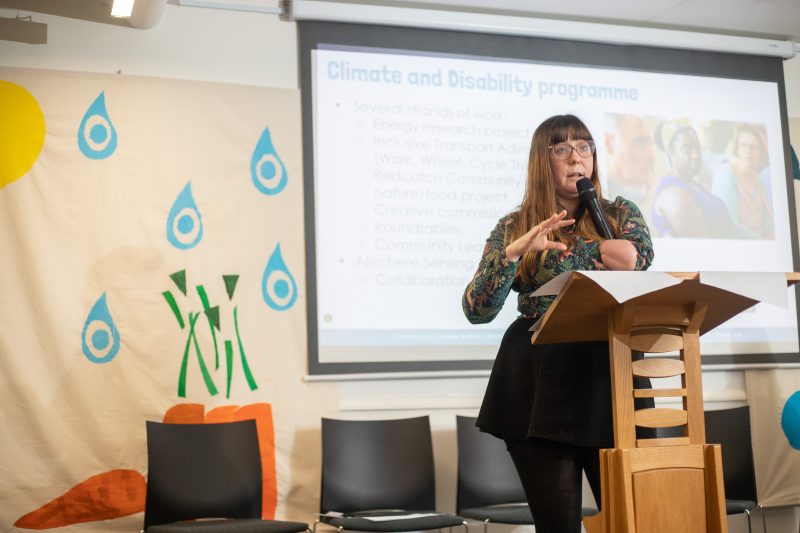
Dr Emma Geen is the programme associate for the Climate and Disability project and has been working on the plan since 2021 – photo: ShamPhat Photography
Just some of the Plan’s top priorities include making sure all new homes and transport projects are accessible for Disabled people; supporting Disabled people to access affordable food that is good for the planet; and considering wide-ranging needs when designing nature spaces for heat resilience.
The showcase itself walked its talk, providing a livestream of proceedings alongside the wheelchair-friendly in-person event, with all speakers giving visual descriptions of themselves, a BSL interpreter present, trigger warnings where necessary and quiet spaces available for anyone feeling overwhelmed.
It was refreshing to see a speaker panel made up entirely of women and non-binary people, while the many men present actively listened and participated.
Perhaps it was this leadership make-up that contributed to the sense of positivity and good humour in the room as speakers described themselves as dressed “in green, because – nature” and “as professional hobbit”, and one panellist tinkled the jargon-busting bell to tackle the use of obstruse language that often plagues climate-focused events.
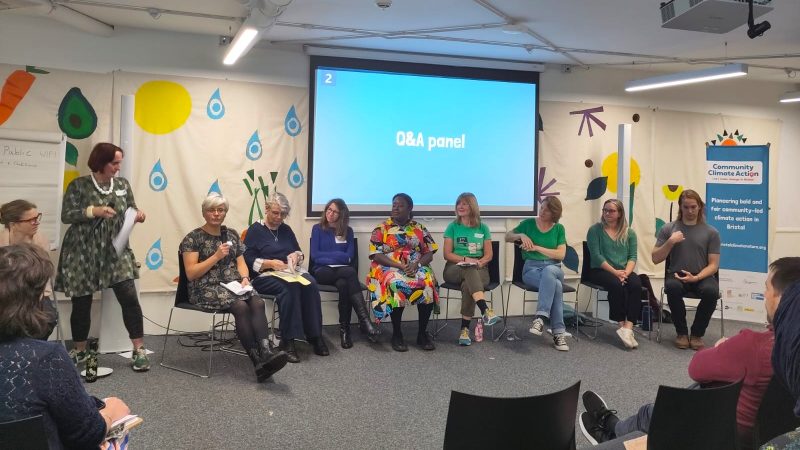
All the speakers at the event were women and non-binary – photo: Ursula Billington
The atmosphere served as evidence to Geen’s statement that “collectively we’ve tried to bring elements of joy and creativity to this work”, and to Dr Sarah Bell’s assertions that fairer, more inclusive societies are better for everyone.
“There’s strength in this work,” she said. The knowledge and skills of Disabled people are currently being left out of climate action due to society’s systemic devaluing of Disabled people’s lives, which is unhelpful for everyone: “You learn a lot about living in an uncertain, unpredictable world through the lived experience of disability,” she said.
Bell, Geen and others have worked together to create the Crip Up Climate Conversations guide intended to help others follow suit in collaborating with Disabled people on climate action. “My job is now to encourage those in power to read the Plan,” said Geen.
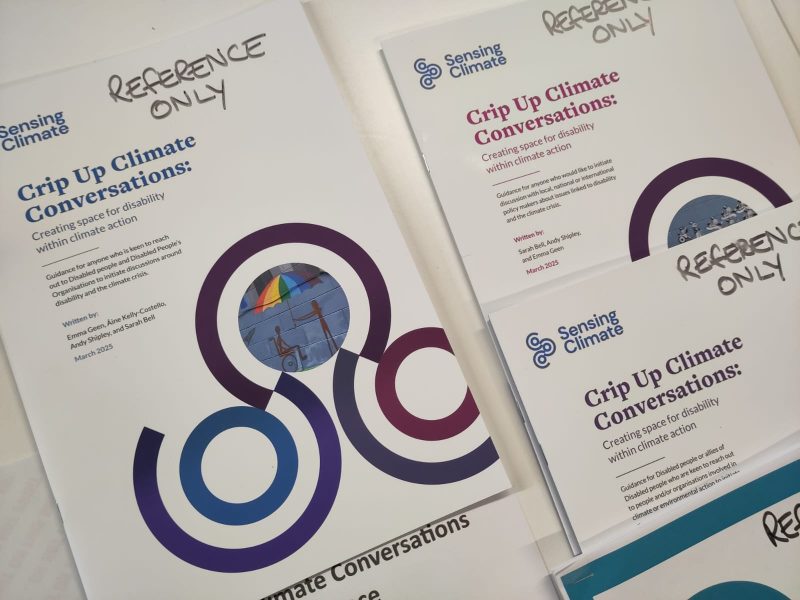
Speakers from the Forum of Disabled people – who met regularly under the banner “nothing about us without us” – were positive about their involvement in the project.
Priyanca D’Souza said: “It’s been amazing to use my lived experience constructively.”
Lynn Parfitt, who identified as working class and Disabled, said she was “attracted to the Forum because I wanted to know more about climate change…to help make a difference.”
She questioned why climate change action is so often seen as the domain of privilege: “When our planet heats up it will not differentiate as to who is impacted – the impact will be massive, we know that, especially for Disabled people. So we’re all in this together.”
This attitude was echoed by Emma Cocksedge of the Walk, Wheel, Cycle Trust – formerly Sustrans – presenting the Inclusive Transport toolkit which aims to make transport in Bristol work better for everyone.
The starting premise is that choosing active travel not only improves the natural environment but creates more space on the roads for those who are car-dependent.
The document outlines other easy actions residents can take to contribute to positive change including avoiding idling to reduce toxic pollution particularly harmful to children and vulnerable people; avoiding parking on the pavement or on dropped curbs; and sharing car journeys.
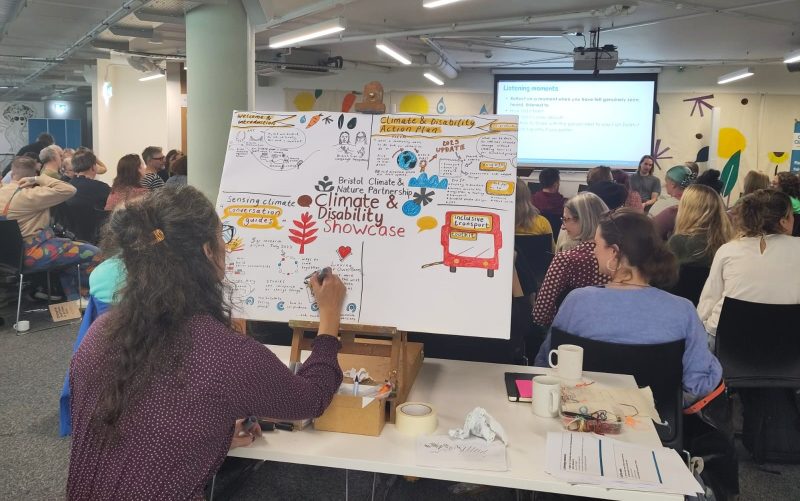
An illustrator documented the events proceedings in images accompanied by pithy summaries – photo: Ursula Billington
Speaking for the Centre for Sustainable Energy (CSE), Harriet Sansom presented a more complex picture of a system actively creating barriers to Disabled people’s involvement. “As a country we are going through an energy transition,” she said, “changing how we use energy and where it comes from.”
Benefits of these changes include cheaper bills and warmer houses. Where Disabled people are twice as likely to experience poverty, less likely to own their own property and more likely to be challenged by a sector insensitive to their individual needs, the system needs to change to make access to these benefits equitable.
Finally, Ruth Nortey discussed the many brilliant projects she had discovered through creation of her Climate Justice in Action podcast, and Liz and Jane from Redcatch Community Garden described the joy of running activities including gardening, cooking and nature therapy for Disabled people, SEND children and people living with dementia.
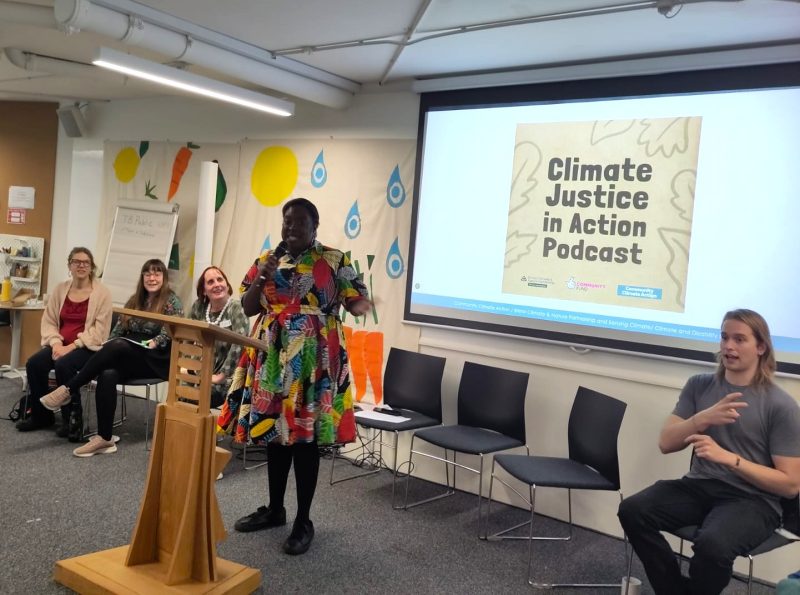
Ruth Nortey’s podcast series explores the intersection between race, disability and climate action – photo: ShamPhat Photography
Jane Bailey, a gardener at the project in Knowle that seeks to benefit the physical and mental wellbeing of local community members, said the work is important: “Climate change really does affect food production – we’ve noticed that in our garden.”
She said the project has had a positive effect: “It’s increased our community cohesion. We’ve learnt a lot from the individuals using our garden. As a workforce, everyone’s awareness has been raised through this work which we’re all really grateful for.”
The sentiment was reiterated by Sarah Bell who suggested the way forward is to create community and ‘see no strangers’: “We’re all finding our way and learning with this. The more we can do that together, the better.”
Amy Harrison of the Bristol Climate and Nature Partnership concluded: “It’s only with collective action and allyship that we’ll be able to make positive change happen in our city.”
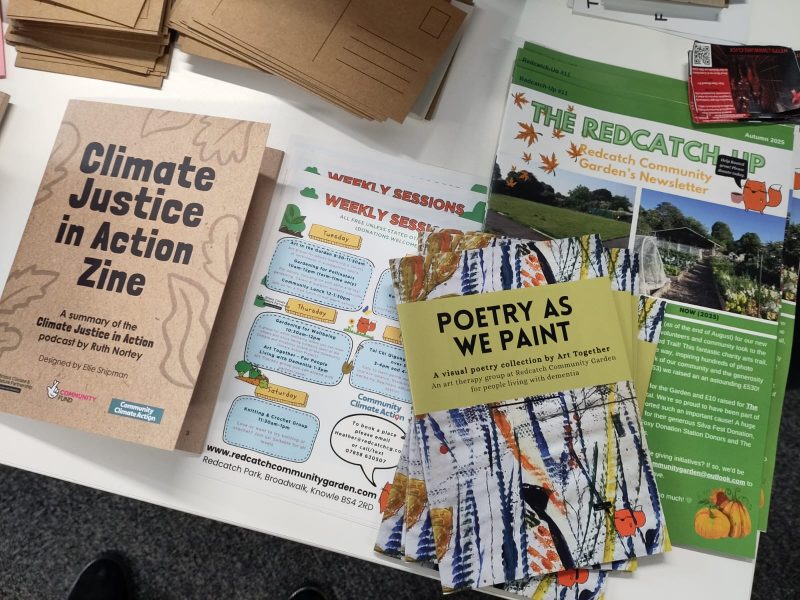
Explore all the resources created as part of the Climate and Disability Community Climate Action Plan at bristolclimatenature.org/news/creating-a-green-and-accessible-future/
Main image: ShamPhat Photography
Read next:
 Our newsletters emailed directly to you
Our newsletters emailed directly to you